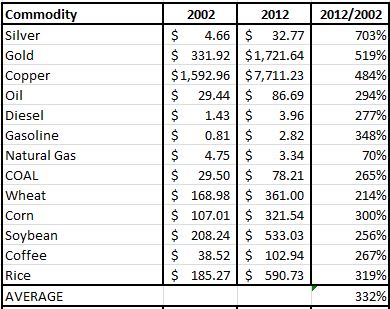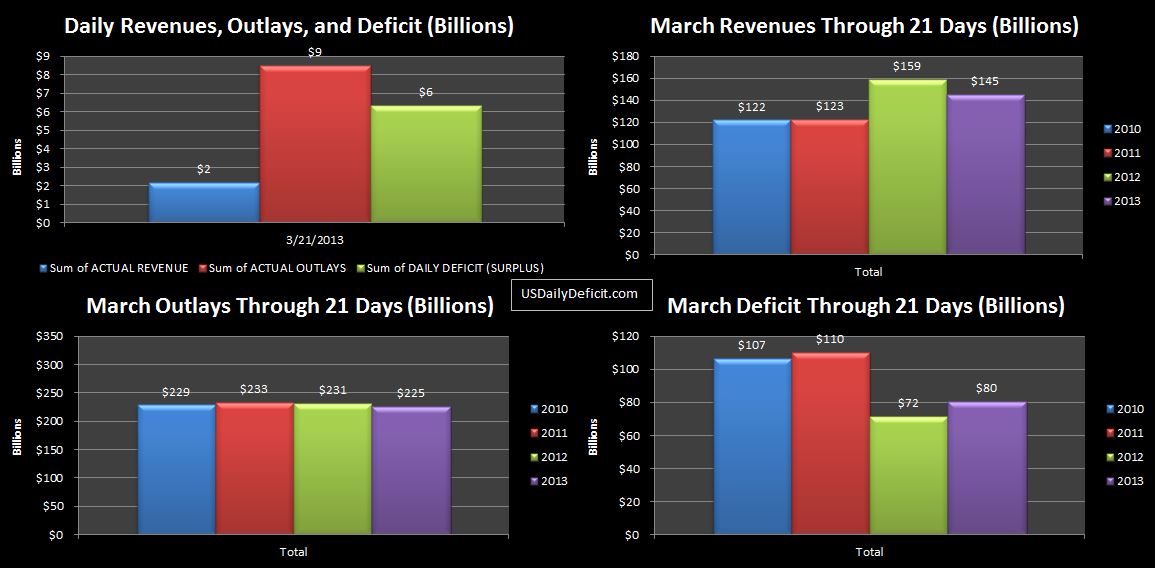I wanted to expand a bit on my earlier post. The economic Witch Doctors are firm in their belief that deficit spending is the cure to jumpstart an ailing economy. They promise that at some point, the spending can be weaned, and the economy can stand on it’s own. We’ve been trying this for a decade and are now working on our 5th straight trillion dollar deficit, with no weaning in sight. I think it’s time to think just a little bit harder about the true affect of deficit spending. The symptom deficit spending tries to cure is declining GDP, or even just a reduction in the rate of growth….in other words, people are deciding not to transact.
In a prior article, we looked at a scenario where a buyer and a seller had a desire to transact, but were simply too far apart on price for a transaction to occur.
After haggling for a bit, the buyer is at $25, and the seller is still at $75….no transaction occurs. Oh no…GDP is crashing…prepare the soup kitchens right? Well…no. You see, the buyer has determined that the value of a massage to him is only $25. Spending $75, would mean taking a loss….which he won’t do, because he can take his $75, and get something he personally values at greater than $75…even if that something is nothing at all. On the other side of the transaction, the seller values his time at greater than $25. He would rather call it a day and spend the extra time with his kids…or watching TV, or sleeping….all things he may personally value more than the marginal $25. In this case, a non-transaction is the optimal economic outcome.
I would offer that this scenario…the decision not to transact is the natural state of things. For example…the Bugatti Veyron is a phenomenal machine, one that I would love to drive and park in my driveway, and yet…I drive a substantially less phenomenal vehicle. The problem, you see, is price, and utility. While I would surely have a blast driving a Veyron, to me, those occasional adrenaline rushes simply are not really worth a decade or two of pay…at least not to me. And if I walked into a dealership…and offered say $25k….they would almost certainly politely, or not so politely decline. And so…Bugatti, and I, though never having met, have collectively decided not to transact. The same thing happens every time you go to the grocery store. Out of tens of thousands of potential products…you politely decline on all but a few dozen….And yet the world keeps turning.
Deficit spending, in one way or another, alters this equation by temporarily subsidizing either the buyer, or the seller, or both. This initiates transactions that otherwise wouldn’t have taken place, spiking GDP, which sounds fine…except that it leaves an extra trillion of debt on the federal governments balance sheet each year. So back to our Bugatti example, maybe the government offers Bugatti a rebate…$1.5M per vehicle sold. Now, Bugatti can afford to sell them for $25k, and with the government’s rebate, make enough to cover production cost and a healthy profit. GDP increases, Bugatti hires thousands of new employees, and all is right with the world right? Well…no, because someday…all of the new Bugatti owner’s kids and grandkids have to pay back the Billions borrowed. Furthermore….we know that the amount of marginal enjoyment these owners will get from their cars us substantially less than $1.5M….or else they would have bought them before, so while we get a temporary increase in GDP and employment, over the long term, the losses are huge.
Now of course, our Bugatti example may be a bit silly. (or is is…anyone remember the Chevy Volt?) Rather than handing out high performance sports cars, our government tends to be a little more subtle. Typically, they will just buy things nobody needs or wants, and hire people to do things that don’t really need to be done. It doesn’t have to be something completely useless…it will generally be something we would all like….just not at the going price… They will send $100 a month to a family for food…which frees up $100…now they can go buy an I-phone, which helps Apple and AT&T. They can send the money to schools, so they can buy overpriced laptops for students to misuse…saving parents money, and helping out computer manufacturers like Dell.. Or…they could just offer to give everyone over 65 a stipend and more or less free medical care…for about $1.5T per year….so those people, rather than saving for retirement over their career…can spend that money on other things.
While all of these things do increase GDP and employment, they all actually result in suboptimal economic outcomes….overriding optimal decisions not to transact by hiding and shifting the true cost. My theory is…that you can never wean, because if you stop paying sellers to sell and buyers to buy…those transactions would simply cease. GDP would revert back to its natural, and optimum state. Only the debt would remain. Since there is no capacity, or even intention to repay, every dollar of deficit spending simply devalues the dollar. Now, official statisticians cleverly hide this in CPI, but it is quite obvious…just look at this selection of commodities from 2002-2012:
So…over this 10 year period, deficit spending was about $10T…and coincidentally, the price (in $) of this selection of commodities just so happened to increase…excluding natural gas, from 200% to 700%, averaging a 332% increase? This isn’t your grandfather’s inflation….this is a government intentionally debasing it’s currency based on the advice of economists who clearly have no friggin clue what they are doing…If you haven’t seen some iteration of this…it’s worth a view. It’s a series of clips of Ben Bernanke before the last financial crisis…Basically whatever this guy predicts based on his models and fancy book lernin…the complete opposite actually happens…this from the cream of the crop….best of the best of what modern economics has to offer. Get ready kids…this fairy tale will not have a happy ending.
It Seems that for the first time in four years, the senate has passed a budget. Republicans are bleating that it “has zero real deficit reduction” and “never balances.”…which is probably all true, but as I discussed a few weeks back, neither does Paul Ryan’s Path to Prosperity. You see, any monkey with a free copy of Google Spreadsheets can make a lot of bogus assumptions about revenue growth and cost cutting and squeeze the “projected” deficit down to zero in 10 or 20 years…Just ask the Congressional Budget Office, who in 2000 projected to much acclaim that the US would be more or less debt free by 2010.
In any case, we now have affirmation by both political parties that one of three things is true about each of them.
-
They are a bunch of Lying SOB’s…
-
They aren’t lying, they are just incredibly incompetent.
-
Or…they believe in fairy tales.
I really don’t know which it is…all seem feasible to me. However, it is time for you to decide if you believe in Fairy Tales…or not. The fairy tale they want you to believe…written by the economic high priests of the last century is quite simple. First…deficits don’t matter. Government, led by the infinite wisdom of elected politicians and an army of bureaucrats can borrow and print an infinite amount of money with no consequences. They will save your job, care for you when you are sick, educate your children, and even manage your retirement for you…all you have to do is believe….and maybe tap your shoes together 3 times.
For comparison, let’s think about what might make sense for a typical family budget. It is generally accepted that an ideal state is a surplus…you should be saving, let’s just say 10% of income…. for rainy days, paydown of debt, and hopefully accumulation of enough wealth for the rather modern invention we call “retirement.” We could have a debate over the specifics, I think we can all agree that more or less, this is a pretty good prescription for success.
Imagine if instead of following the above, our family, with a household income of $80k/year, decides to take the prescription advised by modern economic theory. At this point in time, our family, has accumulated debt approaching $500k….not mortgage debt…unsecured credit card debt. Further, they are accumulating debt at the rate of about $40k per year, with no realistic plan to address the annual deficit, much less actually pay down debt accumulated so far. At this point, really should be bankrupt, but fortunately for them, their credit card company keeps increasing their credit limit, and at this point has actually removed the limit altogether.
Do you see this ending well? Is it possible that a financial policy that would so obviously asinine for a household makes sense for a nation? Ben Bernanke, Tim Geithner, Republicans, Democrats, and most modern economic theory thinks it will. That’s what’s in the Fairy Tale, so it must be true…right? You need to decide for yourself what you believe. Is infinite deficit spending the right medicine to heal a sick economy, or is it just another line of cocaine….inching closer to bankruptcy and ultimately…death?


